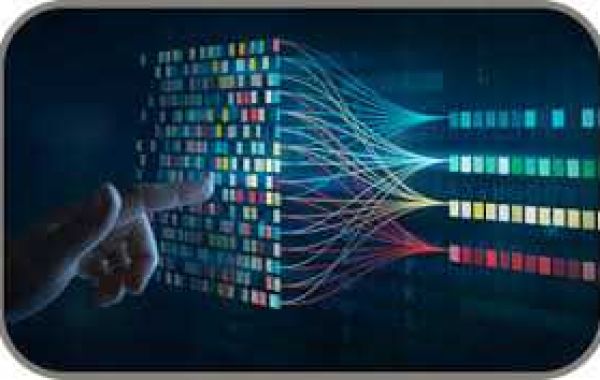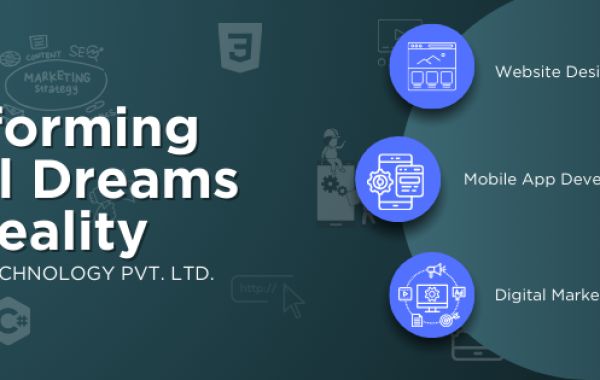The Growing Need for Data Security and Privacy
Data is the most valuable asset in the digital age. From financial information and medical records to personal communications and corporate secrets, the security of data is of paramount importance. However, traditional security systems often rely on centralized control, making them vulnerable to cyberattacks. Hackers can exploit single points of failure to gain access to entire systems, compromising sensitive information.
At the same time, privacy concerns have grown, with users becoming more aware of how their data is collected, stored, and used. Companies that fail to protect personal information face not only legal repercussions but also a loss of trust from their customers. In this context, blockchain technology, with its decentralized and transparent nature, offers a promising solution for both security and privacy.
Understanding Blockchain Technology
Blockchain is a distributed ledger technology that records transactions in a decentralized manner, making it resistant to tampering and fraud. Every transaction is verified by multiple nodes (computers) in the network before it is added to a block, and each block is linked to the previous one, forming a chain. Once a block is added to the chain, it cannot be altered, ensuring data integrity.
Blockchain’s decentralized nature eliminates the need for intermediaries, such as banks or third-party service providers, in verifying transactions. This reduces the risk of data breaches caused by a single point of failure. Moreover, the transparency and immutability of blockchain records make it easier to trace transactions and verify data authenticity.
The Role of AI in Blockchain
While blockchain technology offers significant advantages for data security, it is not without limitations. One of the primary challenges is scalability. As more transactions are added to the blockchain, the network can become slower and less efficient. This is where AI in blockchain comes into play. By integrating AI into blockchain systems, it becomes possible to optimize transaction speeds, enhance security protocols, and improve the overall efficiency of the network.
AI, with its ability to process and analyze vast amounts of data, can automate tasks such as verifying transactions, detecting anomalies, and predicting potential security threats. When applied to blockchain, AI can also help in the creation of smart contracts—self-executing contracts with the terms of the agreement directly written into code. These contracts can be monitored and executed autonomously, reducing the risk of human error or manipulation.
Key Benefits of AI in Blockchain for Data Security
Enhanced Threat Detection: AI algorithms can detect patterns of behavior associated with cyberattacks. By constantly monitoring network activity, AI can identify potential threats in real-time and trigger preventive measures. This proactive approach significantly reduces the likelihood of successful attacks.
Automated Fraud Prevention: In blockchain systems, AI can be used to monitor transactions for signs of fraud. For instance, AI models can identify irregularities in transaction patterns, flagging suspicious activities for further investigation. This automation reduces the burden on human auditors and enhances overall security.
Advanced Encryption Techniques: AI-driven algorithms can be employed to develop more sophisticated encryption techniques. These advanced methods can secure the data stored on the blockchain, making it even more challenging for hackers to access or manipulate information.
Improved Data Privacy: With the rise of privacy concerns, AI in blockchain can be used to develop more secure ways of handling personal data. For example, AI can manage access control, ensuring that only authorized individuals or entities can view or use certain data. Furthermore, by leveraging homomorphic encryption, AI can analyze encrypted data without needing to decrypt it, preserving privacy while still gaining valuable insights.
Efficient Network Management: AI can optimize the operation of blockchain networks by improving consensus mechanisms, which determine how transactions are validated. AI-based algorithms can help select the most efficient nodes to verify transactions, reducing the time and energy required to maintain the blockchain. This makes the system more scalable while maintaining a high level of security.
Real-World Applications of AI in Blockchain for Security and Privacy
Several industries are already leveraging the power of AI in blockchain to enhance data security and privacy. Here are a few examples:
Healthcare: The healthcare industry deals with highly sensitive patient data, making security and privacy paramount. AI in blockchain enables healthcare providers to securely store and share patient information, ensuring that only authorized personnel can access the data. Additionally, AI algorithms can monitor access patterns and flag any unauthorized attempts to view or alter records.
Financial Services: Financial institutions are prime targets for cyberattacks, given the value of the information they handle. AI-enhanced blockchain solutions offer advanced fraud detection and automated monitoring of financial transactions, reducing the risk of money laundering, identity theft, and other forms of financial crime.
Supply Chain Management: In supply chain networks, AI in blockchain can be used to track products from their origin to their final destination, ensuring transparency and security. The technology can detect anomalies in the supply chain, such as counterfeit goods or tampered shipments, safeguarding both businesses and consumers.
Government and Public Sector: Governments around the world are exploring the use of AI in blockchain to secure citizen data. From voting systems to public records, blockchain ensures that information remains tamper-proof, while AI helps detect any attempts to manipulate or access sensitive data.
Challenges and Future Outlook
While AI in blockchain offers numerous benefits for data security and privacy, it is not without challenges. One major concern is the complexity of integrating AI and blockchain systems. Both technologies are resource-intensive, requiring significant computational power and expertise to implement effectively. Additionally, ensuring the ethical use of AI, particularly in privacy-related applications, is crucial.
Despite these challenges, the future of AI in blockchain looks promising. As both technologies continue to evolve, we can expect to see more sophisticated solutions that offer even greater security and privacy. Innovations such as decentralized AI models, where AI algorithms themselves are distributed across a blockchain network, may further enhance data protection.
Conclusion
AI in blockchain represents a groundbreaking combination of technologies that are revolutionizing data security and privacy. By leveraging the strengths of both AI and blockchain, organizations can protect sensitive information, prevent fraud, and ensure the integrity of data. As the digital landscape continues to evolve, AI in blockchain will play an increasingly vital role in safeguarding the future of data security and privacy.








